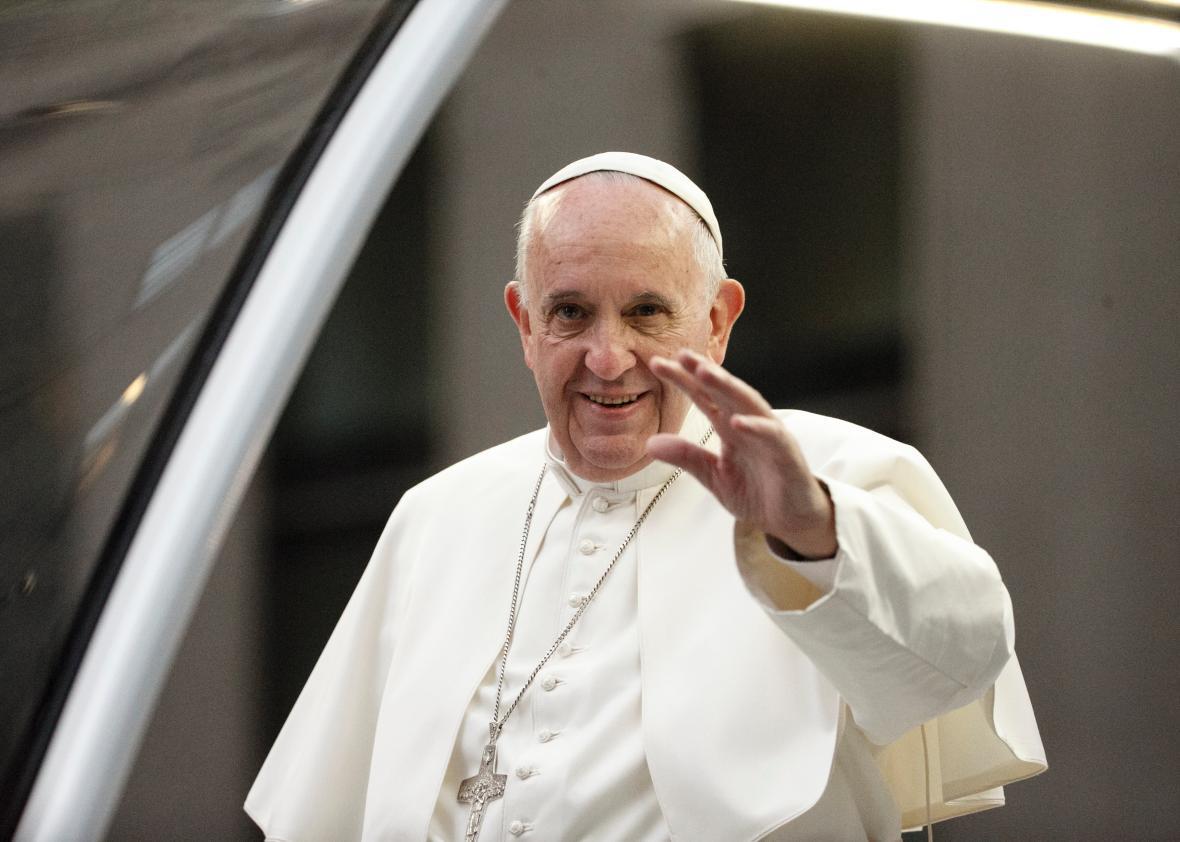It now seems fair to conclude that Pope Francis’ meeting with Kentucky county clerk Kim Davis was a mistake. Vatican officials engaged in damage control of the highest order today, with Reuters reporting one official describing “a sense of regret” over the meeting, which has subsequently cast a shadow over the pontiff’s entire visit. Not-quite-coincidentally, today has also seen new accounts of a second papal meeting being injected into the media bloodstream, this one with Yayo Grassi, an openly gay Argentine man in a committed partnership, who has been described as a longtime friend of Pope Francis’.
You don’t have to fully accept the Vatican account of the meeting, which has suggested that the pope was not well-informed about Davis or her situation, to believe that the Vatican is unhappy about the reaction it has engendered in the press and social media. From their actions, it’s obvious they would prefer to stress the relative openness of the pope toward the LGBTQ community, rather than the church’s official teachings on gender and sexuality. Apparently, the pope would rather be seen as a nice fellow who hugs his gay friends than as a right-wing Davis supporter. For those of us living in America, a meeting with Davis held an obvious and predictable symbolism. Perhaps it was less clear to the pope and his people how much Davis has become a stand-in for everything that divides us.
Is there anything we can learn from the meeting and the reaction to it? As I wrote late last week, the pope’s most consistent message has been that as Americans, we should look past divisions over wedge issues like same-sex marriage in order to focus on more complex, but no less important long-term problems such as poverty, immigration, and climate change. When we allow people like Kim Davis to occupy an outsized place in our public discourse, we all lose. Even Kim Davis loses, probably—after all, she is a human being, one with a family and a life beyond her beliefs regarding the issuance of marriage licenses.
Beneath the hype and the outrage about Davis and her actions, there’s a legitimate question about how we weigh the rights of the individual to make their personal beliefs known against the duty of public officials to follow the law and the ability of all people to take advantage of their right to a civil marriage, regardless of income or mobility. If anyone wishes to sincerely engage in that conversation, I welcome it.
What we’ve done in the past few days, me included, has certainly not been to engage in a nuanced debate about these matters, though. We’ve allowed an individual of no real importance to stand in for all anti-gay bigotry and intolerance, and then we gave that individual the power to confer her position on anyone who meets her or shakes her hand. That this was predictable does not make it acceptable. The pope still (probably) does not support same-sex marriage. He is still (certainly) a voice for the poor and downtrodden. Whether we can learn to engage with good people whose beliefs differ from ours in some respects is still, unfortunately, an open question.
